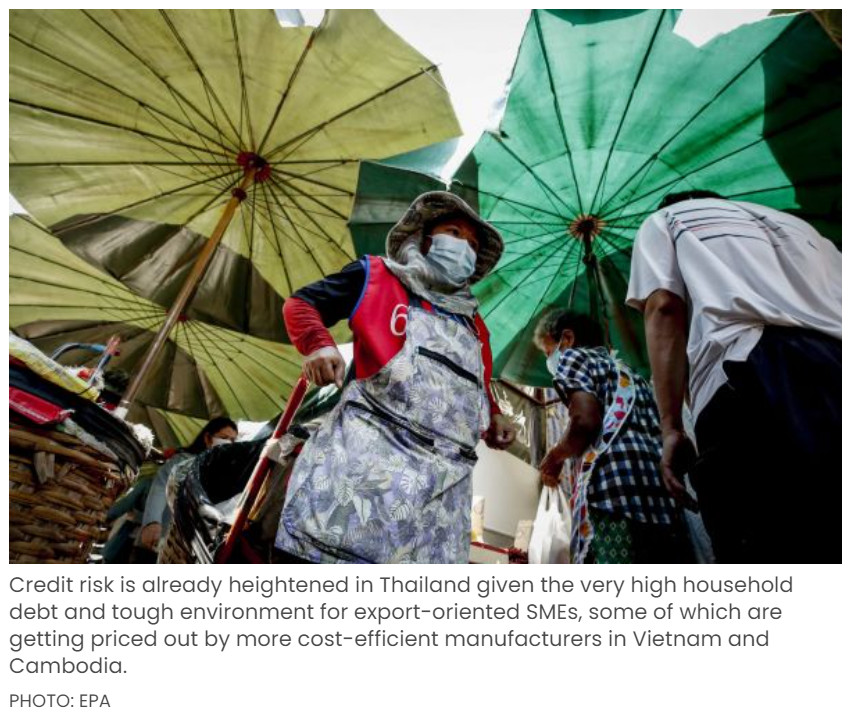Thai banks’ resilience to be tested as moratoriums expire: S&P Global Ratings
THE asset quality of Thailand’s banks is set to deteriorate in the next 12 to 24 months, with the non-performing loan ratio expected to increase up to 6 per cent, said S&P Global Ratings on Tuesday.
This compares with a reported non-performing loan ratio of 3.3 per cent in 2020 based on the banks S&P rates. 2019’s systemwide average was 3 per cent.
The proportion of the loan book under moratorium has reduced to an average of about 20 per cent for major rated Thai banks, compared with the systemwide average of 31 per cent in the initial phase of the moratorium in mid-2020.
“In our opinion, temporary relief measures are unlikely to eliminate risks for weaker and more vulnerable debtors, although they may lessen the strain and delay recognition of problem loans,” said the ratings agency.
Credit risk is already heightened in Thailand given the very high household debt and tough environment for export-oriented SMEs (small and medium-sized enterprises), some of which are getting priced out by more cost-efficient manufacturers in Vietnam and Cambodia.
It said it expects credit losses for the Thai banking sector to remain elevated at 1.9 per cent of outstanding loans this year, from 1.2 per cent in 2019. Credit costs have increased across the board which has dragged down the return on assets of rated banks to 0.7 per cent in 2020, versus the systemwide average of 1.4 per cent in 2019.
“We forecast a U-shaped recovery in 2021 with GDP (gross domestic product) growth of 5 per cent for Thailand,” said S&P Global Ratings. “This revival is needed to stabilise credit conditions. A prolonged delay in the country’s economic recovery could deepen the downside scenario for domestic banks, given high household leverage and the weakness in the SME sector.”
Source: https://www.businesstimes.com.sg/asean-business/thai-banks-resilience-to-be-tested-as-moratoriums-expire-sp-global-ratings


 Thailand
Thailand




